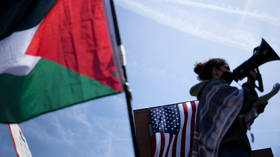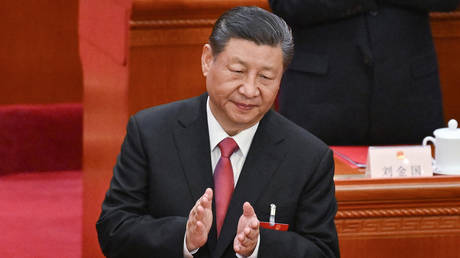Dancing Through the Geopolitical Minefield
by Charles Hugh Smith, Of Two Minds:

The elites dancing through the minefield all have plans, but how many are prepared for the punch in the mouth?
Open any newspaper from the past 100 years and you will soon find a newsworthy geopolitical hotspot or conflict. Geopolitical conflict is the default setting for humanity, it seems, but it does feel as if the minefield of geopolitical rivalries and flashpoints has been thickly sown and many of the players are dancing through the minefield with a worrisomely cavalier confidence that they won’t step on mine, i.e. bad stuff only happens to the other players.
The global minefield includes these dynamics:
1. The grinding collision of geopolitical tectonic plates: spheres of influence, soft and hard power projection, border conflicts, etc.
2. The urgency sparked by the pandemic to take advantage of rival’s vulnerabilities and the countering urgency to defend one’s key borders/interests.
3. The destabilizing forces of elite dominance and wealth inequality within nation-states encourage elites to seek external distractions.
In this context, it’s interesting to review Edward Luttwak’s three stages of Empire. Luttwak’s The Grand Strategy of the Roman Empire sketches out three stages of Empire that apply equally well to elites within nation-states. In other words, elites can be said to have conquered their domestic masses politically, socially and economically, much as imperial elites conquer other nation-states.
Luttwak describes the first stage of expansion thusly:
“With brutal simplicity, it might be said that with the first system the Romans of the republic conquered much to serve the interests of the few, those living in the city–and in fact still fewer, those best placed to control policy.”
The second stage spread the benefits of Empire much more broadly:
“During the first century A.D., Roman ideas evolved toward a much broader and altogether more benevolent conception of empire… men born in lands far from Rome could call themselves Roman and have their claim fully allowed, and the frontiers were efficiently defended to defend the growing prosperity of all, and not merely the privileged.”
The third stage is one of rising inequality:
“In the wake of the great crisis of the third century, the provision of security became an increasingly heavy charge on society, a charge unevenly distributed, which could enrich the wealthy and ruin the poor. The machinery of empire now became increasingly self-serving, with its tax collectors, administrators and soldiers of much greater use to one another than to society at large.“
That line describes the global situation rather neatly. Geopolitical blocs, alliances, nation-states with imperial pretensions and nation-states with regional power ambitions are all in a land-rush frenzy to extend and consolidate their influence and power by any means available: financial, trade, diplomatic, soft power (cultural imperialism, etc.) and hard power (military forces) before the inherent internal instability of their elites’ dominance catches up with them.



